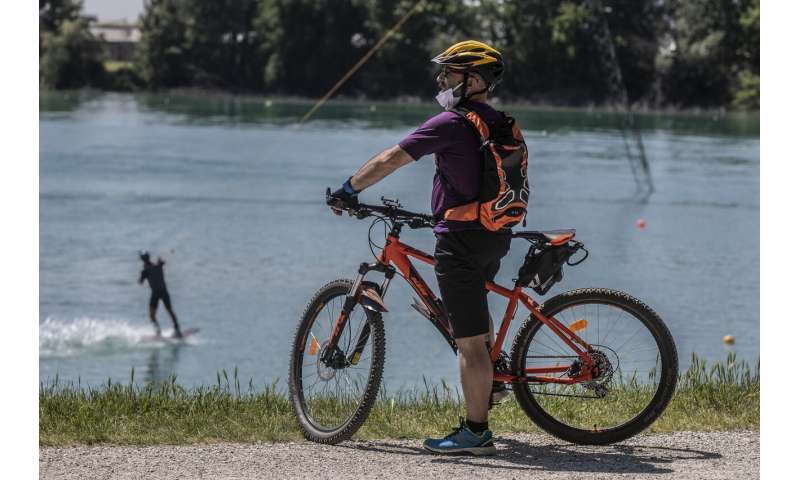
South Korea’s capital closed down more than 2,100 bars and other nightspots Saturday because of a new cluster of coronavirus infections, Germany scrambled to contain fresh outbreaks at slaughterhouses, and Italian authorities worried that people were getting too friendly at cocktail hour during the country’s first weekend of eased restrictions.
The new flareups—and fears of a second wave of contagion—underscored the dilemma authorities face as they try to reopen their economies.
Around the world, the U.S. and other hard-hit countries are wrestling with how to ease curbs on business and public activity without causing the virus to come surging back.
Elsewhere, Belarus, which has not locked down despite increasing case numbers, saw tens of thousands of people turn out to mark Victory Day, the anniversary of Nazi Germany’s defeat in 1945. That was in contrast to Russia, which skipped the usual grand parade in Red Square.
Germany and South Korea have both carried out extensive testing and contact tracing and have been hailed for avoiding the mass deaths that have overwhelmed other countries. But even there, authorities have struggled with finding the balance between saving lives and saving jobs.
In South Korea, where a decline in new cases had prompted the government to loosen up, Seoul shut down thousands of nightclubs, hostess bars and discos after dozens of infections were linked to clubgoers who went out last weekend as the country relaxed its social-distancing guidelines.
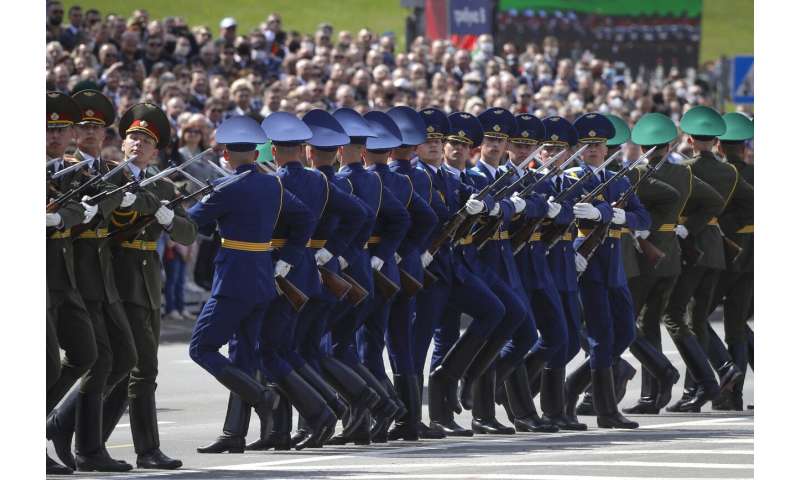
Many of the infections were linked to a 29-year-old man who visited three nightclubs before testing positive. Mayor Park Won-soon said health workers were trying to contact some 1,940 people who had been at the three clubs and other places nearby.
The mayor said gains made against the virus are now threatened “because of a few careless people.”
Health officials in Germany faced outbreaks at three slaughterhouses in what was seen as a test of the government’s strategy for dealing with any resurgence of the virus as the restrictions are eased. At one slaughterhouse, in Coesfeld, 180 workers tested positive.
Germany’s NGG union, which represents food industry workers, said the outbreaks were the result of “a sick system.” Freddy Adjan, a senior union official, said the meat industry has for years been relying on “dubious subcontractors” that exploit workers.
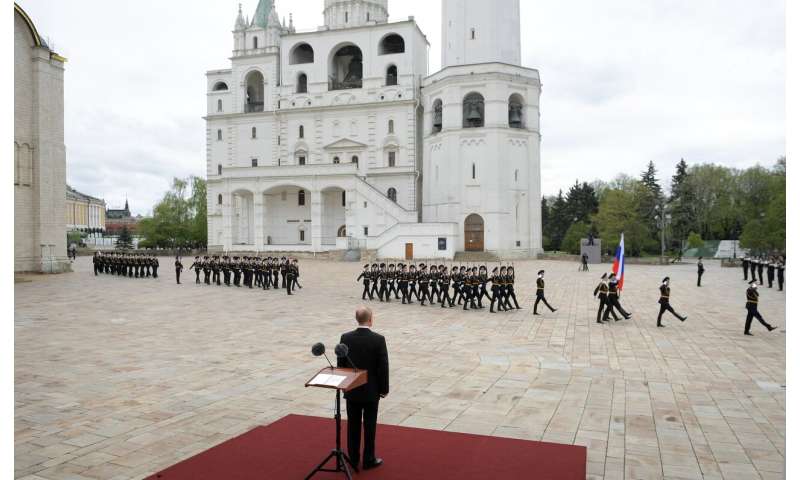
U.S. authorities are likewise watching for a second wave, more than two weeks after states began gradually reopening, with Georgia largely leading the way.
Meanwhile, governments came under fresh scrutiny over their handling of the crisis.
German Foreign Minister Heiko Maas said Europe must acknowledge that it “wasn’t well-prepared” for the outbreak. In the U.S., internal government emails obtained by The Associated Press show that a decision to shelve detailed advice from the nation’s top disease control experts for reopening communities during the epidemic came from the highest levels of the White House.
Worldwide, the virus is confirmed to have infected over 3.9 million people and killed more than 275,000, according to a tally by Johns Hopkins University based on data reported by governments.
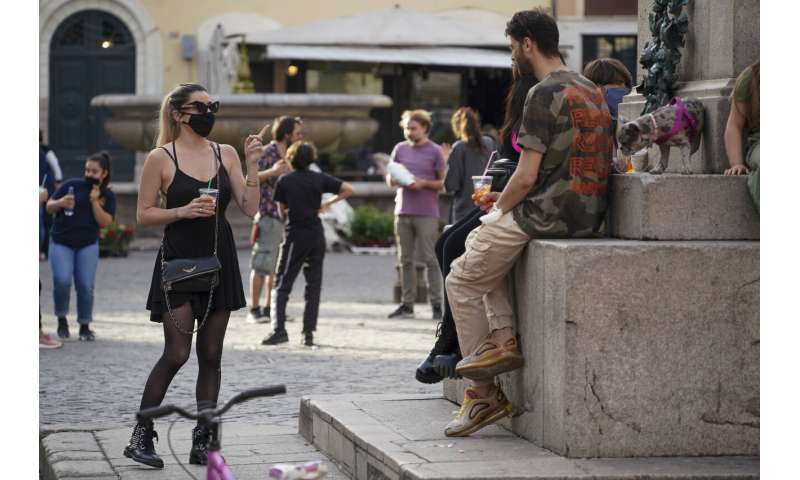
Hard-hit Italy saw people return to the streets for their traditional aperitivos and revel in fine weather as restrictions there eased. In some cases, people went too far for the authorities.
Milan Mayor Giuseppe Sala warned that “a handful of crazy people” were putting the city’s economic recovery at risk, and threatened to shut down the city’s trendy Navigli district after crowds of young Milanese were seen out at aperitivo hour ignoring social-distancing rules.
In Rome, the Campo dei Fiori flower and vegetable market was bustling Saturday morning, the first weekend Italians were allowed outside for more than just work and necessities. The Campo piazza, long a center of nightlife, has also come back to life at the evening aperitivo hour.
But confusion about what is now allowed and what is not created frustration for business owners.
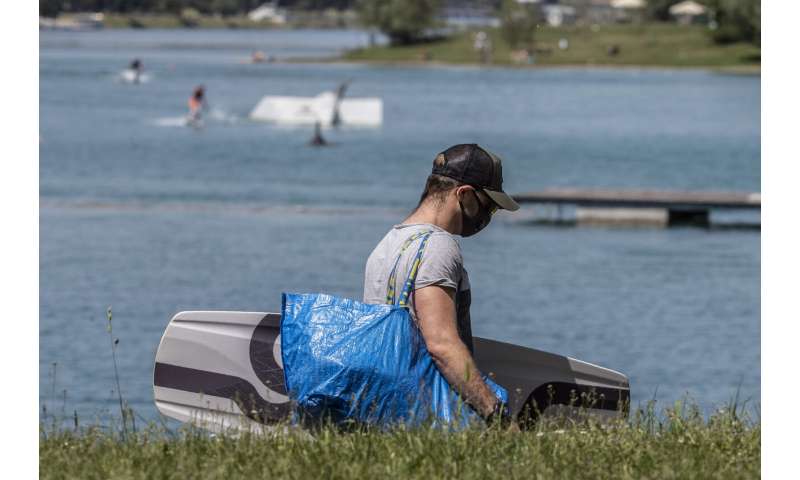
Carlo Alberto, owner of the TabaCafe, an Argentine empanada bar that was selling cocktails to a few customers Friday, said that since reopening this week he had been threatened with a fine by the police because of the crowds that had formed in front of his bar.
“Am I supposed to send them home? They need a guard here to do that,” he said. “The laws aren’t clear, the decree isn’t clear. You don’t know what you can do.”
In the U.S., the head of the Food and Drug Administration, Stephen Hahn, put himself in quarantine after coming into contact with an infected person. And the government said it is delivering supplies of remdesivr, the first drug shown to speed the recovery of COVID-19 patients, to six more states. Seven states were sent cases of the medicine earlier in the week.
Elsewhere, Pakistan allowed shops, factories, construction sites and some other businesses to reopen Saturday, while more than 1,600 new cases and 24 deaths were reported. Prime Minister Imran Khan said the government is rolling back curbs because it can’t support millions of families that depend on daily wages.
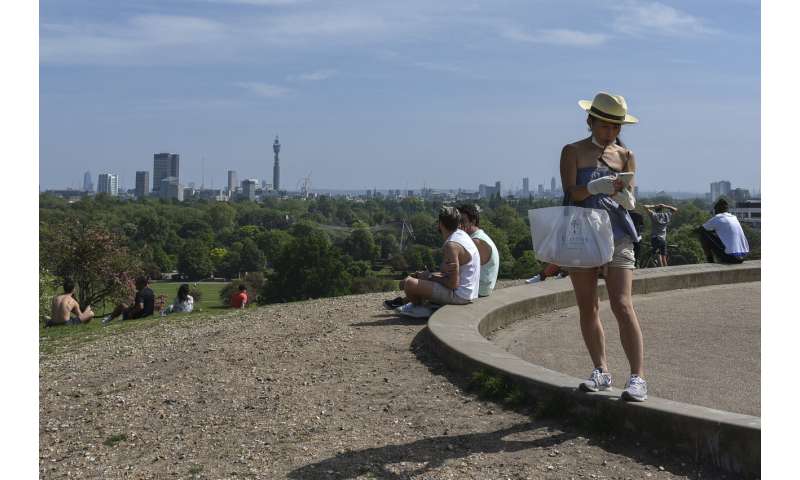
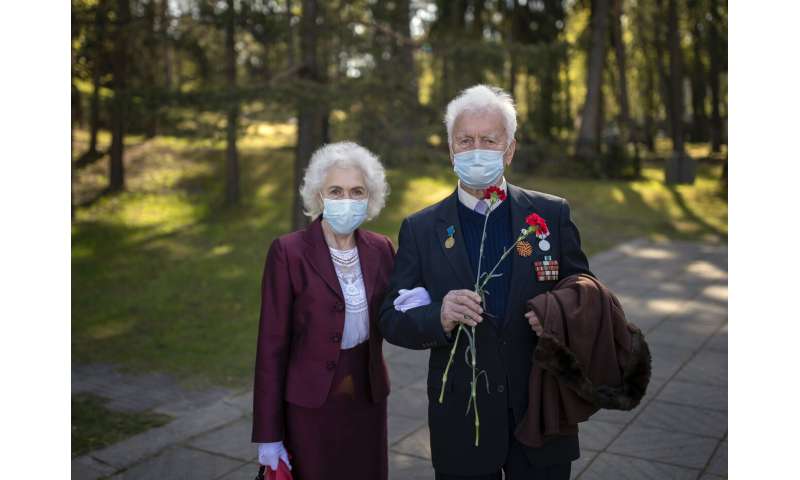
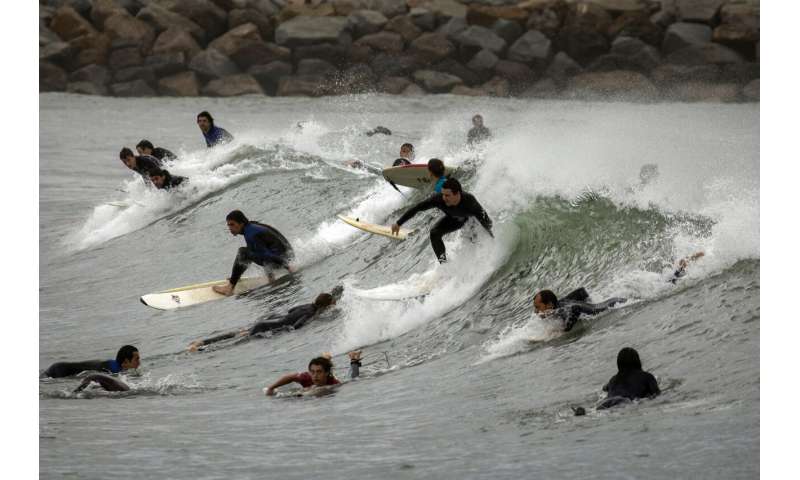
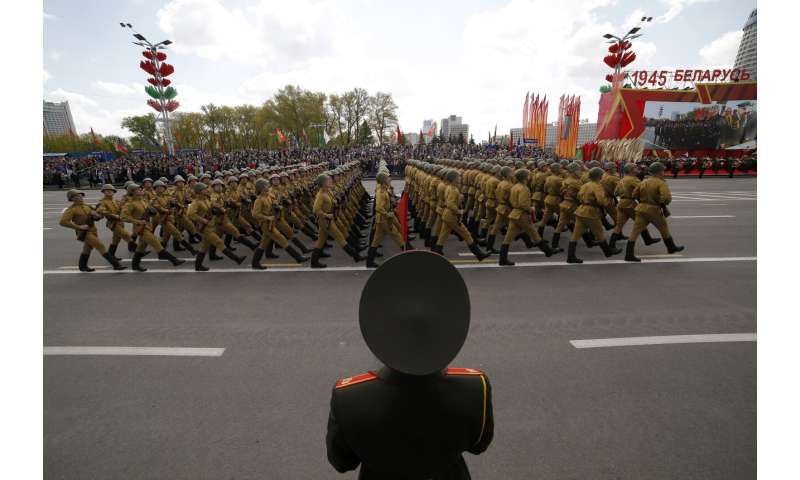
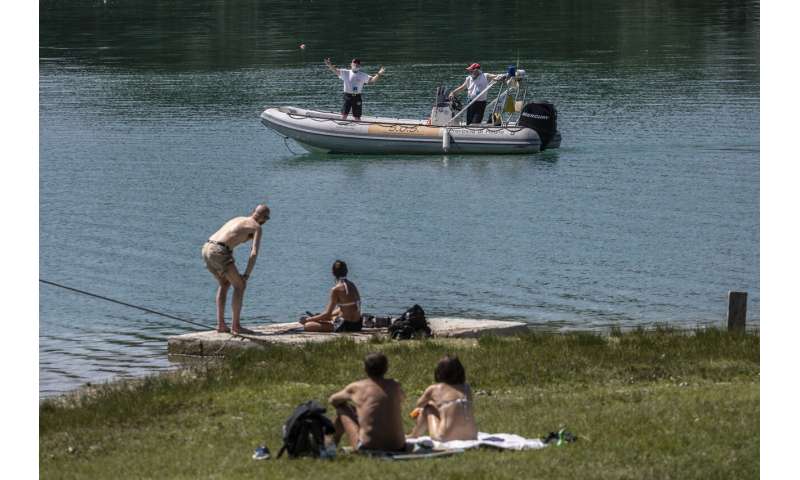
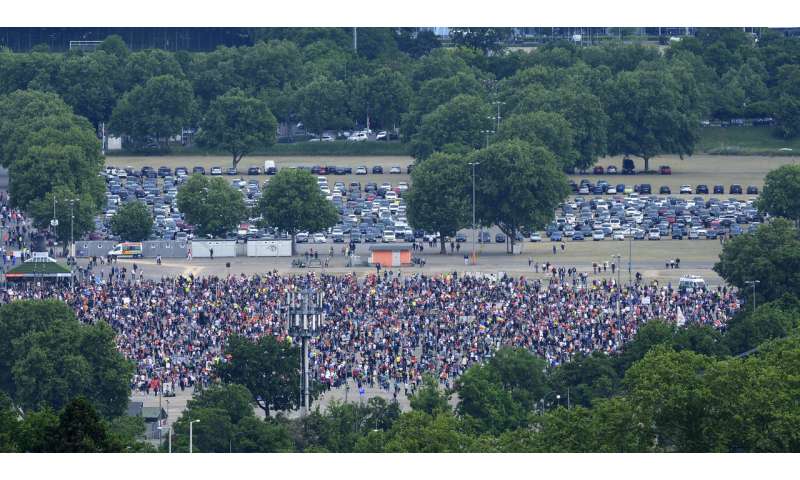
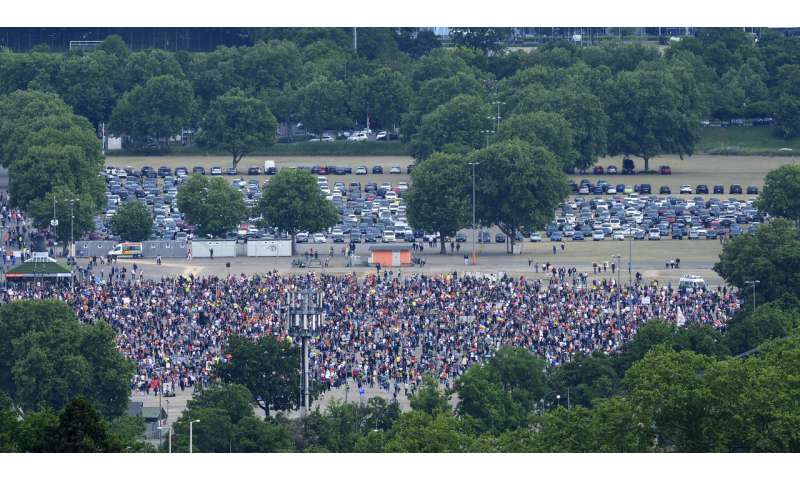
The government warned that controls will be reimposed if the public fails to follow social-distancing guidelines.
In Spain, health authorities will allow certain regions to scale back their lockdowns starting Monday, with limited seating at bars, restaurants and other public places. But Madrid and Barcelona, the country’s largest cities, both badly hit by the virus, will remain shut down.
“The pandemic is evolving favorably, but there is a risk of another outbreak that could generate a serious catastrophe,” Spanish health official Fernando Simón said. “Personal responsibility is vital.”
This year’s observance of Victory Day in Russia had been expected to be especially large because it is the 75th anniversary. Instead, Vladimir Putin laid flowers at the tomb of the unknown soldier, and a show of military might was limited to a flyover of 75 warplanes and helicopters.
Source: Read Full Article
